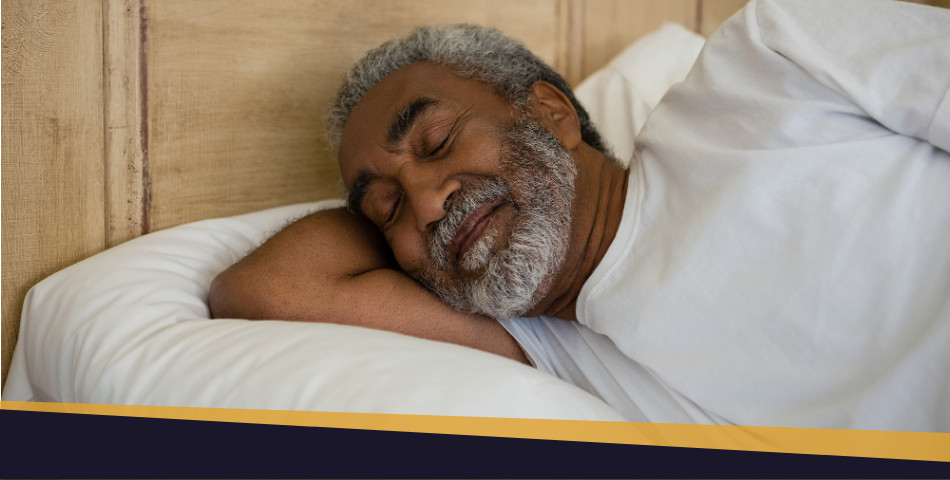6 tips to improve your sleep

Getting enough sleep is important at any age – it helps you stay healthy and alert. The Centers for Disease Control and Prevention (CDC) says adults 65 years and older should get about seven to eight hours of sleep per day. At ApexHealth, we realize that getting enough rest gives us the energy we need to live life boldly and getting older doesn’t mean you have to be tired all the time! Since March is Sleep Awareness Month, we decided that it was a good time to provide six tips to improve your sleep.
1. Create a regular sleep schedule and stick to it!
Sticking to a schedule is important. Try your best to go to sleep and get up at the same time each day.
2. Avoid taking late afternoon or early evening naps.
Taking naps at these times may keep you awake at night.
3. Relax before bed.
Develop a bedtime routine to help you relax. Ideas include reading a book, soaking in a warm bath, or listening to music. Avoid watching television or using electronics while in bed. The light could make it tough to sleep, and loud, alarming programs like horror movies or television shows could keep you awake.
4. Exercise regularly each day.
We’ve previously suggested that you make an effort to move more to improve your heart health. Regular physical activity can also help you sleep better, just not within three hours of bedtime. Just remember, if you have heart disease (or another chronic condition) it’s a good idea to talk to your doctor about the appropriate level and intensity of exercise.
5. Avoid eating too late and stay away from caffeine and alcohol.
Eating large meals close to bedtime can keep you awake, and so can caffeine. Chocolate, coffee, soda and tea can all have caffeine in them. Keep this in mind. Drinking alcohol can also make it hard to stay asleep.
6. Set up a safe and restful place to sleep.
Creating a safe and restful place to sleep means making sure you have smoke alarms on each floor of your home and making sure there are no area rugs that could trip you should you have to get up in the middle of the night. Near your bed, have a telephone with emergency numbers, a lamp within reach and a glass of water for if you wake up thirsty. Before you go to sleep, make sure your doors and windows are locked.
We know that there are other obstacles to getting a good night’s sleep. The National Institutes of Health (NIH) note that insomnia is a common problem when you’re 60 and older. Other problems that could affect your sleep include sleep apnea, a condition in which you may experience short pauses in breathing and snoring while asleep or movement disorders such as restless legs syndrome, periodic limb movement disorder, and rapid eye movement sleep behavior disorder.
If you are experiencing any of these symptoms or interruptions to your sleep, we recommend that you discuss this with your doctor or health care provider. They’ll be able to help you find solutions to help you get a better night’s sleep.
H9828_22ALLSIXSLEEPTIPSBLOG_C






